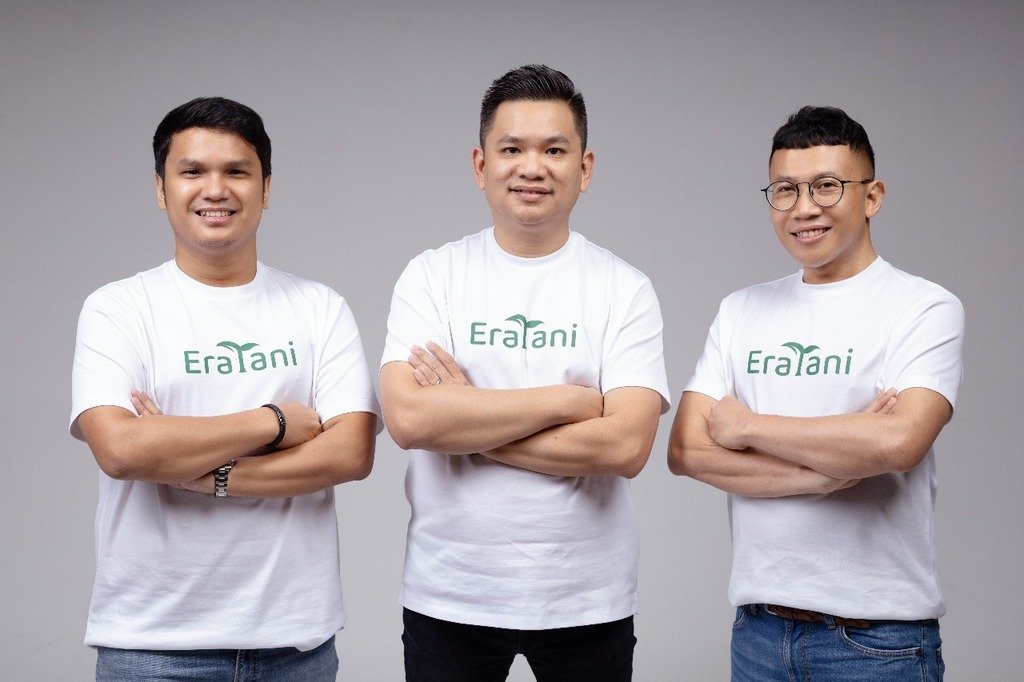Indonesia’s agriculture technology landscape has faced its fair share of turbulence in recent years, but one startup is quietly working to turn the tide. Eratani, an agrotech firm founded in 2021, has raised US$6.2 million in Series A funding to expand its work with rice farmers across the country. This investment comes at a time when confidence in the broader agrotech space is shaky, yet Eratani’s approach is rooted in steady, community-focused growth rather than chasing the spotlight.
A Measured Step Forward During an Uncertain Time
The funding round was led by Clay Capital, with participation from several notable investors including AgFunder, SBI Ven Capital, TNB Aura, Genting Ventures, and IIX. This infusion of capital is meant to support Eratani’s efforts to build a more sustainable and accessible model for rice farming in Indonesia.
This commitment is noteworthy in part because it comes amid a significant dip in sector-wide investments. According to Tech in Asia, funding for agrotech ventures in Indonesia dropped from US$135.6 million in 2023 to just US$33.2 million in 2024. That decline reflects a broader unease among investors, much of it triggered by controversies in the sector—most prominently, the recent admission from eFishery’s former CEO of falsifying financial statements.
Against this backdrop, Eratani is positioning itself as a more transparent and long-term player. CEO Andrew Soeherman stressed that the company prioritizes open communication with investors, an approach aimed at restoring credibility where it has been lost. CFO Bambang Cahyo Susilo echoed that sentiment, explaining that this moment offers a chance for Indonesian startups to demonstrate their integrity. “We want to show that there are companies here that operate with honesty and care for their communities,” he said.
Building Trust Through Tangible Results
Eratani’s model is built around tangible, on-the-ground support for rice farmers, many of whom struggle with limited access to credit, reliable infrastructure, or modern tools. Instead of relying solely on high-tech interventions, the company blends accessible digital solutions with traditional farming practices that local communities already understand and trust.
The startup’s platform assists with a full range of farming needs—from financing and crop planning to input supply and market access. In 2024, Eratani reported a 29% increase in crop yields and a 25% bump in income among the farmers it works with. These results come from a model designed not just to increase output but to improve the overall well-being of farming households.
Currently, the company supports over 34,000 smallholder farmers managing more than 13,000 hectares of rice fields. With the new funding, it plans to extend its reach to key rice-growing areas including South Sulawesi, East Java, Central Java, and West Java. By 2029, Eratani hopes to connect with more than 283,000 farmers.
Grounded Technology That Works for Everyone
What makes Eratani’s approach distinct is its understanding of the communities it serves. While technology is at the heart of its platform, the company recognizes that many rural farmers may not have smartphones or digital literacy. To overcome this barrier, it works closely with farmers using both in-person engagement and practical tools. This allows tech adoption to grow organically within each farming community.
Susilo noted that when one farmer sees the benefits of using Eratani’s platform, it often encourages neighbors to follow suit. This word-of-mouth growth has been crucial in helping the company scale without imposing solutions that might not align with local realities.
In addition to crop management, Eratani helps farmers access financial services—particularly those who are unbanked. By evaluating non-traditional risk factors such as land conditions, soil health, and irrigation reliability, the company provides credit options to farmers who might otherwise be excluded from formal banking systems.
Also Read: New Flood-Resistant Rice Variety Brings Hope to Farmers in Karaikal
Looking Beyond Quick Wins
Unlike many startups that chase rapid expansion and headline-grabbing growth metrics, Eratani is taking a slower, steadier route. Its focus is on sustainability—both environmental and financial. By incorporating data analytics and risk management into everyday farm operations, the company helps its users make better decisions while reducing the risks associated with unpredictable weather, pests, or market fluctuations.
The new funding will go toward building up Eratani’s technical infrastructure, including expanded use of drones, satellite imagery, IoT devices, and agricultural data centers. These tools are not meant to replace farmers but to support them in making more informed and efficient decisions.
Over the past few years, Eratani has already raised US$7.4 million in earlier rounds to lay the groundwork for its platform. This latest investment is meant to strengthen that foundation rather than pivot dramatically. It’s a continuation of a philosophy that values consistency over novelty.
A Different Kind of Agrotech Story
Eratani’s progress offers a quiet but meaningful counterpoint to some of the more high-profile challenges facing Indonesia’s agrotech sector. With companies like eFishery under scrutiny and investors feeling cautious, the industry is at a crossroads. Yet examples like Eratani show that not all is lost.
The firm’s strategy of community engagement, gradual tech integration, and transparent operations is proving that impact doesn’t always need to come in a flash. It can grow steadily, one rice field at a time, through partnerships built on trust and actions that speak louder than pitch decks.
In a sector often driven by bold claims and high expectations, Eratani is carving out a different path—one that might not make instant headlines but could very well hold the key to a more resilient future for Indonesia’s farmers.


